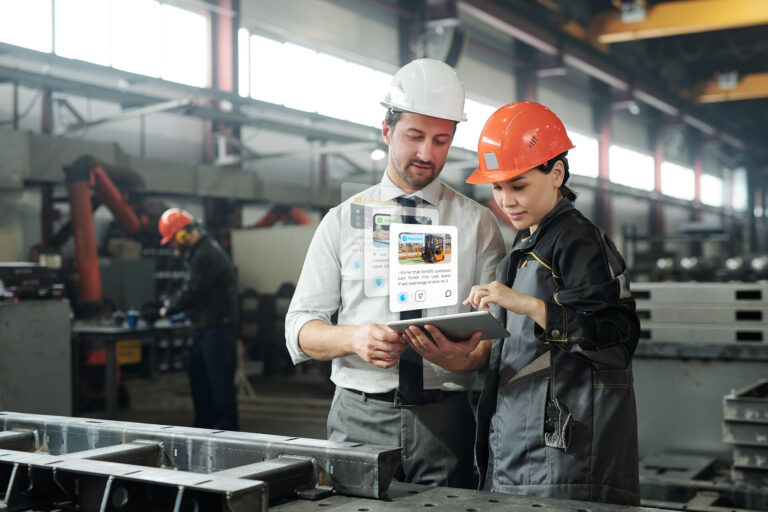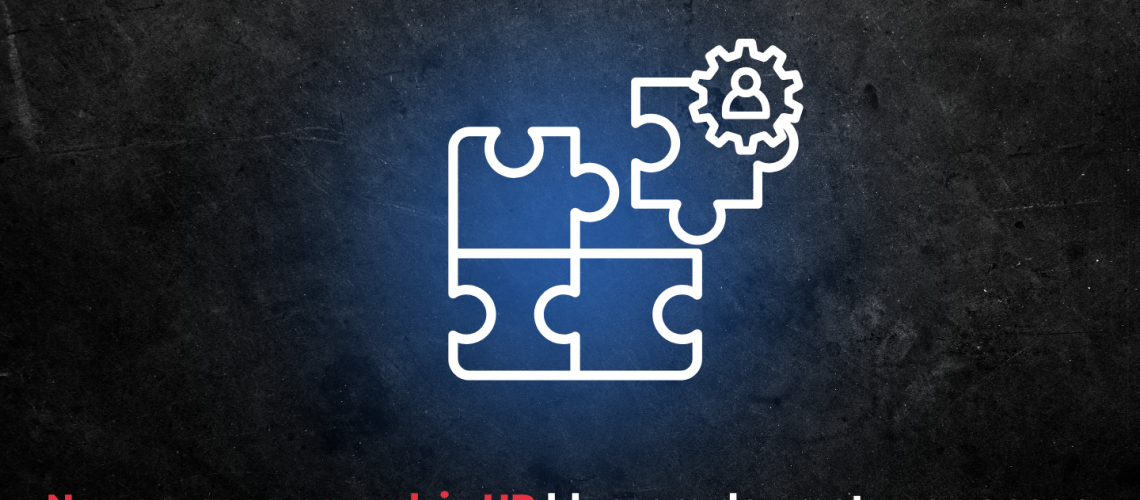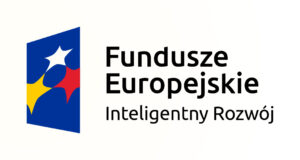Last updated: 31.01.2024
Properly designed incentive systems can significantly increase employee productivity and engagement. HR technology makes it possible to create personalized incentive systems, tailored to the needs and preferences of individuals. It also allows for ongoing monitoring of progress, automation of processes and immediate feedback.
In Article:
- Technology plays a key role in today's corporate incentive systems.
- Thanks to modern HR tools, it is possible to communicate quickly and effectively with employees, constantly monitor their needs and involvement, and tailor incentive systems to individual preferences.
- Automating many processes, such as recruitment, training and onboarding, saves HR departments time and resources.
- Employees have more freedom to access benefits and perks, which increases their satisfaction.
- Reporting and data analytics allow us to better understand the needs of teams and tailor incentive systems.
- The use of technology to build employee engagement and loyalty is expected to continue to grow in the coming years.
- Companies that want to attract and retain the best employees must harness the potential of new HR technologies.
- In this article, we take a closer look at the role HR technology plays in implementing modern and effective employee incentive systems.
Table of Contents:
- The role of HR technology in the company
- Areas of HR technology support
- HR technology tools
- Impact of technology on motivation
- Automation of HR processes
- Analytics and reporting
- Communication and engagement
- Online training
- Technology in building employee engagement and loyalty
See also: How to develop an employee?
The role of HR technology in the company
Technology plays a key role in today's HR departments, helping to streamline and automate many HR processes. The introduction of modern tools makes it possible to significantly reduce the time it takes to complete many HR and payroll tasks, as well as reduce the operating costs of the HR department.
One of the main areas where HR technology brings the greatest benefits is the automation and optimization of daily HR processes such as recruitment, induction of new employees, training, periodic evaluations and absenteeism. By implementing IT systems, labor-intensive administrative tasks can be reduced in favor of more strategic HR initiatives. HR professionals thus gain more time to build commitment, develop team potential and implement incentive programs.

Areas of HR technology support
Technology supports many key areas of human resource management, impacting process efficiency and the quality of the employee experience. Here are some of the main areas where modern technology solutions bring significant value:
- Recruitment - tools to automate the recruitment process, online candidate competency tests, video identity verification, recruitment chatbots to improve contact with candidates.
- Onboarding - platforms for remote onboarding of employees containing adaptation materials, training, onboarding tasks to facilitate the implementation of a new employee.
- Training - e-learning, online training and webinar platforms, microlearning to help develop employees through their entire path in the company.
- Evaluations - feedback tools, employee surveys, online periodic evaluations to increase transparency and facilitate the evaluation process.
- Communication - internal communication platforms, mobile apps, tools for employee engagement and building organizational culture.
- Analytics - systems to analyze HR data, generate reports on employee development, engagement and performance as support for business decisions.
Modern technological solutions optimize HR processes, increase the productivity of HR departments and build a better employee experience(employee experience). They are a key element of modern human resource management.
HR technology tools
Technology provides companies with a wide range of tools that can improve HR processes. Some of the most commonly used tools by modern HR departments include:
- Applicant Tracking Systems (ATS) - software for electronic management of recruitment and selection of candidates, allowing automation of processes such as posting ads, screening resumes, conducting tests or video interviews.
- HRMS (Human Resource Management System) - comprehensive IT systems that allow to digitize many processes such as recording employees, calculating salaries, conducting training, employee evaluations or tracking vacations.
- HR analytics - specialized analytical tools that use advanced statistical methods and artificial intelligence (AI) algorithms to generate detailed reports and indicators, such as those on productivity, absenteeism or employee turnover.
- Instant messaging and collaboration platforms - software that allows employees to communicate, share information and collaborate. Popular tools of this type include Microsoft Teams, Slack.
- E-learning platforms - systems for conducting training and development of employees in remote form. They allow you to create e-learning courses, track progress and communicate with trainees. An example is a streaming development platform for managers, leaders and those aspiring to this role - Youniversity.
The use of these tools significantly improves the work of HR departments and allows for a more informed and strategic approach to human resource management in the organization.
Impact of technology on motivation
HR technology plays a key role in building employee engagement and motivation. Modern tools allow for quick and transparent communication and provide employees with real-time feedback.
- Quick feedback - HR applications allow managers to provide employees with ongoing feedback and appreciation for their work. This helps build a culture of feedback and foster a sense of appreciation.
- Training - e-learning platforms give employees access to a wide range of online training, which improves their skills and gives them a sense of development. Technology also makes it easier to monitor learning progress.
- Transparency - HR systems give employees insight into their performance evaluation, goals, development path and compensation. This increases transparency and builds trust.
- Engagement - modern internal communication tools, employee surveys, or employee suggestion systems engage employees and make their voices heard. This increases their motivation and attachment.
Using the potential of HR technology, it is possible to build a modern incentive system based on feedback and engagement. It has a positive impact on both employee satisfaction and organizational effectiveness.

Automation of HR processes
Automating HR processes is key to improving employee management. As technology advances, more and more routine and repetitive HR tasks can be automated.
Benefits of automating HR processes:
Saves time
automation eliminates the need to perform many tasks manually, allowing HR departments to save time and focus on more strategic projects. Automated reminders, communication with employees or data entry into the system take much less time.
Eliminating human error
computers perform tasks accurately and without mistakes. Automation reduces the number of errors caused by inattention or fatigue of HR staff.
Better allocation of resources
with automation, HR can focus on more valuable tasks requiring human skills and creativity. HR can spend more time on development projects, coaching and building engagement.
Process automation increases the efficiency of HR departments, speeds up tasks and reduces the possibility of errors. It's a key component of a modern organization's talent management system.
Analytics and reporting
One of the key areas of HR technology support is analytical and reporting tools. They allow the collection and analysis of data on employees, their performance and efficiency.
This makes it possible to create better-tailored incentive systems that take into account the individual needs and goals of employees. Analytical tools make it possible to track the progress of tasks and goals, which makes it possible to accurately determine rewards and bonuses. Employees receive financial motivation adequate to their actual contribution to the company.
HR technology also supports measuring the effectiveness of implemented incentive systems. Reports show the impact of rewards, benefits or promotions on employee productivity and engagement. As a result, incentive systems can be continuously improved and adapted to current needs.
Thus, HR analytics provides valuable information needed to build effective and fair systems for motivating employees. It is a key tool to support HR processes in companies using modern technologies.
Communication and engagement
Better informed employees are more motivated employees. Modern HR tools allow for efficient and effective communication within the company. Employees have access to up-to-date information on the company's strategy, goals and initiatives. They can track the progress of projects and the achievement of key indicators. This gives them a better understanding of how their work contributes to the success of the entire organization.
Digital communication facilitates the flow of information between departments and locations. Employees have access to shared calendars, notes, procedures. They can quickly share knowledge and experience. Modern communication tools build a sense of community and commitment.
A culture of feedback and open communication is also an important element. Digital tools make it possible to regularly collect employee feedback, study engagement or conduct surveys. They also allow for free, two-way communication between employees and managers. This makes employees feel that their voice counts.
Modern technology provides transparency in communication and engages employees in the life of the company. This fosters motivation and greater identification with the organization's goals.

Online training
Online training is a key component of modern corporate training systems. They allow for greater flexibility, time savings and personalized learning for employees.
E-learning provides the opportunity to conduct training anywhere, anytime, without the physical presence of trainers and participants. Employees can learn at their own pace, repeat selected passages and adjust the learning schedule to their preferences.
Online training platforms allow a significant reduction in the time required for learning. Not having to commute and eliminating "dead time" (such as for coffee breaks) are significant savings.
Technology also makes it possible to personalize content and tailor training to the needs of specific groups of employees. Algorithms recommend appropriate courses based on previous activity and test results. This allows for more effective learning.
In this way, online trainings significantly improve the development of employees' competencies, with flexibility, time savings and personalization. They are a modern tool for strengthening incentive systems.
Technology in building employee engagement and loyalty
Technology plays a key role in modern corporate incentive systems. Thanks to modern HR tools, it is possible to communicate quickly and effectively with employees, constantly monitor their needs and involvement, and tailor incentive systems to individual preferences.
Automating many processes, such as recruitment, training and onboarding, saves HR departments time and resources. Employees have more freedom to access benefits and perks, which increases their satisfaction. Reporting and data analytics allow us to better understand the needs of teams and tailor incentive systems.
In the coming years, the use of technology in building employee engagement and loyalty is expected to continue to grow. This will include the increasing use of artificial intelligence and machine learning in HR analytics, the implementation of game-based incentive systems (gamification), and augmented reality used in training and onboarding. Companies that want to attract and retain the best employees must harness the potential of new HR technologies.
__________________________
If your challenge is to implement modern and effective employee incentive systems and you are looking for a technology that can support you in this, contact us: schedule a meeting >>










